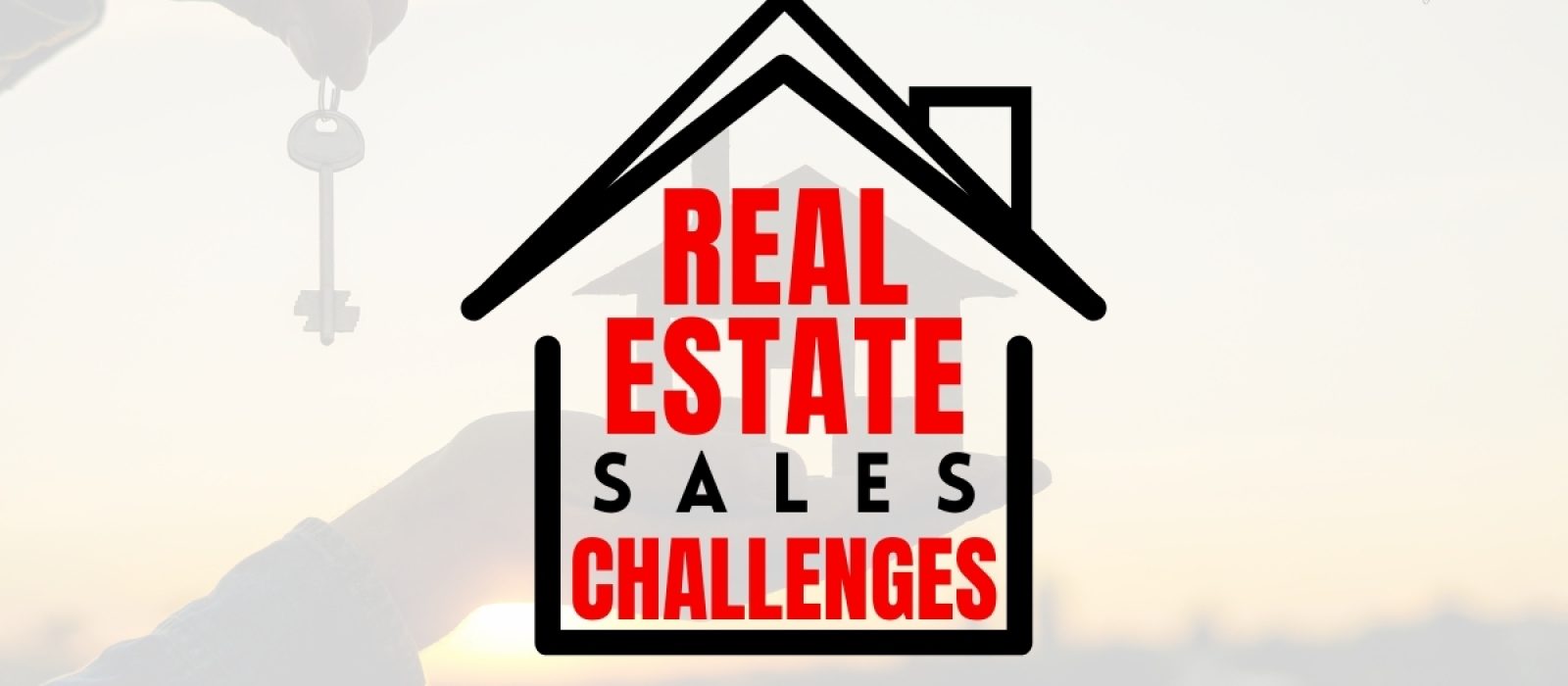Are you a real estate salesperson? Have you been facing challenges and issues in your line of work lately? If so, then this article is for you. Real estate sales can be a highly rewarding profession, but it also comes with its fair share of obstacles and difficulties. In this article, we will discuss some common problems that many real estate agents face and how to overcome them effectively. So let’s dive in and see if these are familiar struggles for you as well.
Unable to Get People’s Attention
In the highly competitive real estate market, grabbing the attention of potential buyers can be extremely challenging. Consequently, buyers are now bombarded with a constant stream of information. They navigate through countless listings, property websites, and social media platforms. Therefore, with so many listings and advertisements, it’s hard to stand out.
Furthermore, research has shown that our attention spans have shortened, particularly when browsing online. For instance, according to a study by Microsoft, the average human attention span has dropped from 12 seconds in the year 2000 to just 8 seconds in 2021, which is shorter than that of a goldfish! This means that real estate agents have a mere handful of seconds to grab a potential buyer’s attention.
The Impact
- Extended Listing Times: Properties that struggle to capture attention tend to stay on the market for extended periods. As time goes by, potential buyers may begin to question why a property hasn’t sold, potentially eroding its perceived value.
- Price Reductions: Frustrated sellers may contemplate reducing the asking price to attract interest, potentially resulting in lower returns for both the seller and the agent.
- Increased Marketing Costs: Real estate agents may find themselves increasing their marketing budgets to amplify their property’s visibility, leading to higher expenses.
Solutions
Professional Presentation: High-quality, professionally taken photographs and virtual tours are essential for showcasing a property’s best features. Studies have consistently shown that listings with professional photos attract more attention and command higher prices.
Compelling Storytelling: Crafting engaging property descriptions that go beyond the basic features and evoke emotions can capture a potential buyer’s imagination. Buyers often seek a connection to a property, and storytelling can achieve just that.
Targeted Marketing: Utilize online marketing channels and social media platforms to reach potential buyers directly. Precisely targeted advertising can significantly improve the chances of capturing the right audience’s attention.
Networking: Building and nurturing professional networks can lead to word-of-mouth referrals, connecting agents with motivated buyers who might not be actively searching online.

Responsiveness: Quick and personal responses to inquiries are critical to maintaining potential buyers’ interest. A lack of timely communication can cause them to lose interest and move on.
Unique Selling Proposition (USP): Identifying and promoting a property’s unique selling points sets it apart from the competition. Whether it’s a breathtaking view, unique architecture, or exceptional amenities, highlighting these features can grab attention.
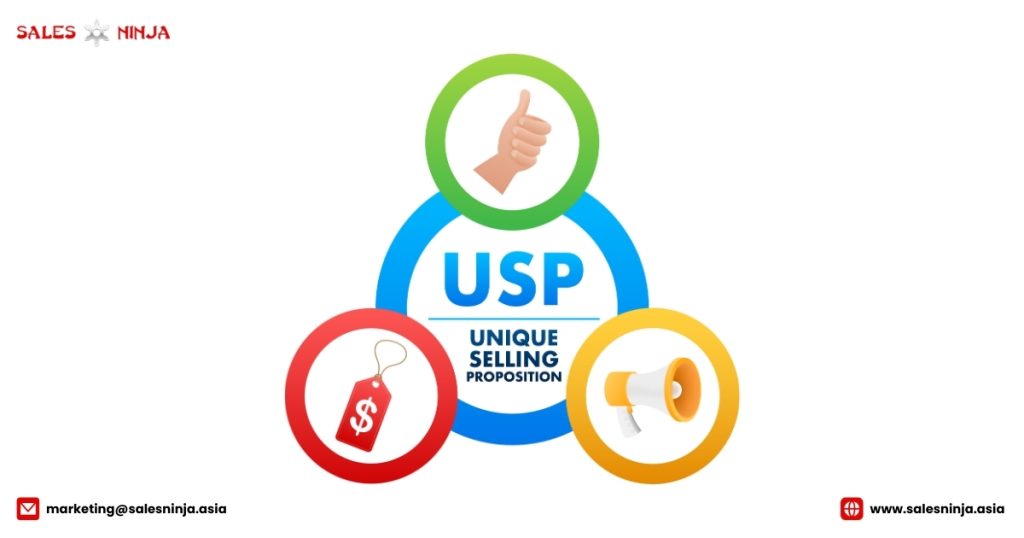
Content Marketing: Creating informative and valuable content, such as blog posts or videos about the local area, can help establish an agent’s expertise and attract potential buyers organically.

Low Turn-Up Rates at Sales Galleries
Low turn-up rates at sales galleries essentially indicate that only a small fraction of potential buyers, who initially show interest in a property, actually end up visiting the sales gallery. This phenomenon can stem from various factors:
Firstly, lack of awareness can play a significant role. Prospective buyers might not be fully informed about the property or the existence of the sales gallery. This issue often arises from insufficient marketing efforts or failure to effectively promote the property.
Secondly, the perceived inconvenience of visiting the sales gallery can deter buyers, particularly if it’s located far from where they live or work.
Lastly, a decline in interest is another factor. Some potential buyers may lose enthusiasm after more research, or they might discover other properties that align more closely with their preferences.
Solutions
Enhanced Marketing Efforts: Invest in comprehensive marketing campaigns that not only promote the property but also emphasize the unique experience of visiting the sales gallery. Highlight any exclusive features, amenities, or incentives available only to visitors.
Convenience and Accessibility: Choose sales gallery locations strategically, aiming for accessibility and proximity to major transportation hubs. Consider extended working hours or weekend viewings to accommodate buyers’ schedules.
Virtual Tours and Technology: Leverage technology to provide virtual property tours, allowing potential buyers to explore the property from the comfort of their homes. This can help filter out genuinely interested parties.
Transparent Communication: Build trust with potential buyers through transparent and reliable information dissemination. Share accurate and detailed property descriptions, floor plans, and pricing information to address any skepticism.
Exclusive Events: Organize special events, previews, or workshops at the sales gallery to create a sense of exclusivity and excitement among potential buyers.

Post-Sale Support Issues
Post-sale support issues, which encompass the difficulties and challenges that emerge after a real estate transaction has concluded, frequently become a significant problem. This is especially true when salespersons exhibit a ‘don’t care’ attitude after sealing a deal.
Furthermore, buyers, having entrusted the agent with a major financial decision, anticipate continuous support and advice post-purchase. They need help with various aspects like property maintenance, neighborhood insights, or addressing unexpected issues after moving in.
Consequently, if the salesperson demonstrates a lack of interest or concern post-sale, it can lead to negative outcomes for both buyers and sellers. Additionally, it can adversely impact the reputation of the real estate professional involved.
Impact
- Dissatisfied Clients: When buyers perceive a lack of interest or responsiveness from the salesperson after the sale, they are likely to become dissatisfied. This can result in negative reviews, complaints, and a damaged reputation for the salesperson and the agency.
- Lost Referral Opportunities: Satisfied clients are more likely to refer friends and family to the salesperson. Conversely, a “don’t care” attitude may lead to lost referral opportunities and decreased future business.
- Reduced Agent-Customer Trust: Trust is a fundamental element in real estate transactions. A lack of post-sale support can erode the trust established during the sales process, leading to strained relationships.
Solutions
Maintain Communication: Regularly check in with clients after closing the deal. This can be through phone calls, emails, or in-person visits. Inquire about their satisfaction and address any concerns promptly.
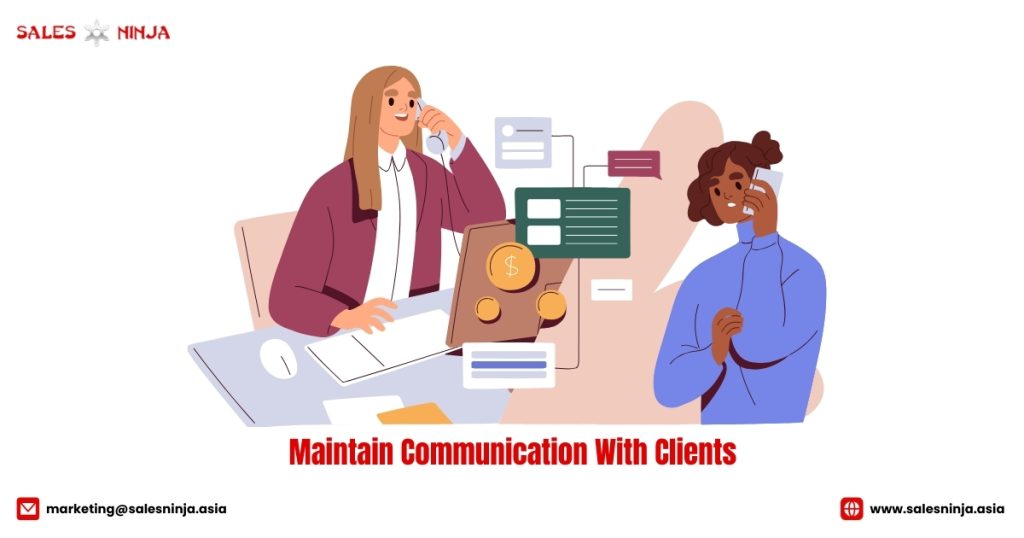
Offer Resources: Provide clients with valuable resources, such as contact information for local service providers, neighbourhood guides, or property maintenance tips. This demonstrates an ongoing commitment to their well-being.
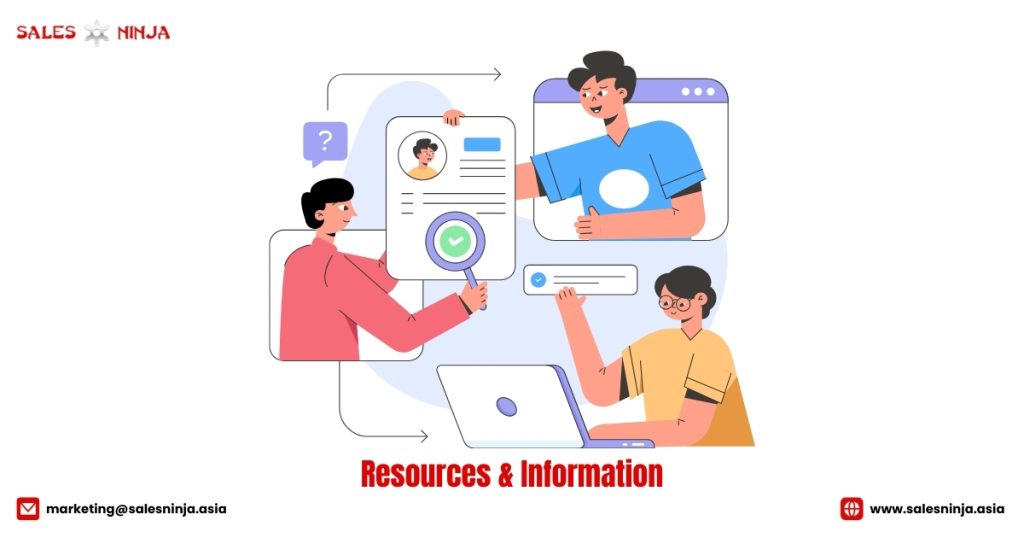
Personalized Service: Tailor post-sale support to each client’s specific needs. Recognize that every buyer’s situation is unique and may require different levels of assistance.
Maintain a Caring Attitude: Show genuine care and interest in the well-being of clients. A positive and attentive attitude can go a long way in ensuring customer satisfaction.
Poor Presentation Skills
A critical aspect of real estate sales is the presentation of a property’s unique selling points (USPs). Consequently, effective presentation skills are essential in the real estate industry because they directly influence a buyer’s perception of a property. Unfortunately, agents often struggle to effectively communicate these aspects to potential buyers.
Furthermore, according to a survey conducted by the National Association of Realtors (NAR), 95% of home buyers use online websites in their home search, highlighting the significance of online property presentations. Moreover, the same survey found that the quality of property photos and detailed information are among the most important website features for buyers. Therefore, when an agent fails to present a property well, it can have detrimental effects on the sale.
Impact
- Reduced Perceived Value: When properties are not presented professionally, buyers may perceive them as less valuable or well-maintained, leading to lower offers or disinterest.
- Extended Listing Times: Properties with poor presentations tend to stay on the market longer, increasing carrying costs for sellers and potentially leading to price reductions.
- Missed Opportunities: Buyers may overlook a property with poor presentation, even if it has features that could meet their needs, resulting in missed sales.
Solutions
Home Staging: Consider staging properties to help buyers visualize the potential of the space. Staged homes often photograph better and create a more welcoming atmosphere.
Detailed Descriptions: Craft compelling property descriptions that highlight unique features and convey the lifestyle that the property offers. Use descriptive language to engage buyers.
Professional Videography: Create property videos that showcase the property’s interior and exterior, offering buyers a dynamic perspective.
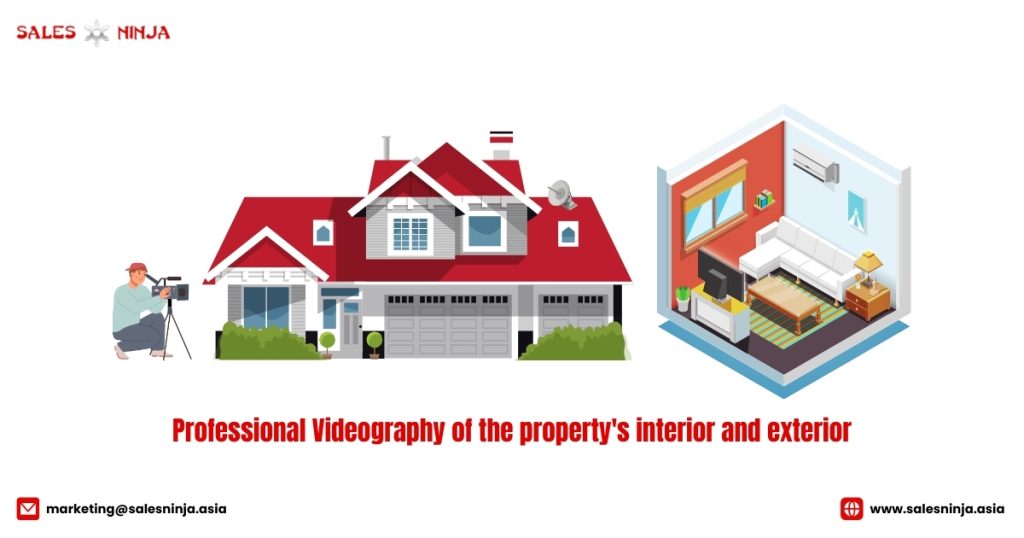
Clear and Responsive Communication: Ensure that agents are well-prepared to answer questions and provide additional information promptly and professionally.
Invest in Training: Offer training programs or workshops to help agents improve their presentation skills, including public speaking, effective communication, and property showcasing.
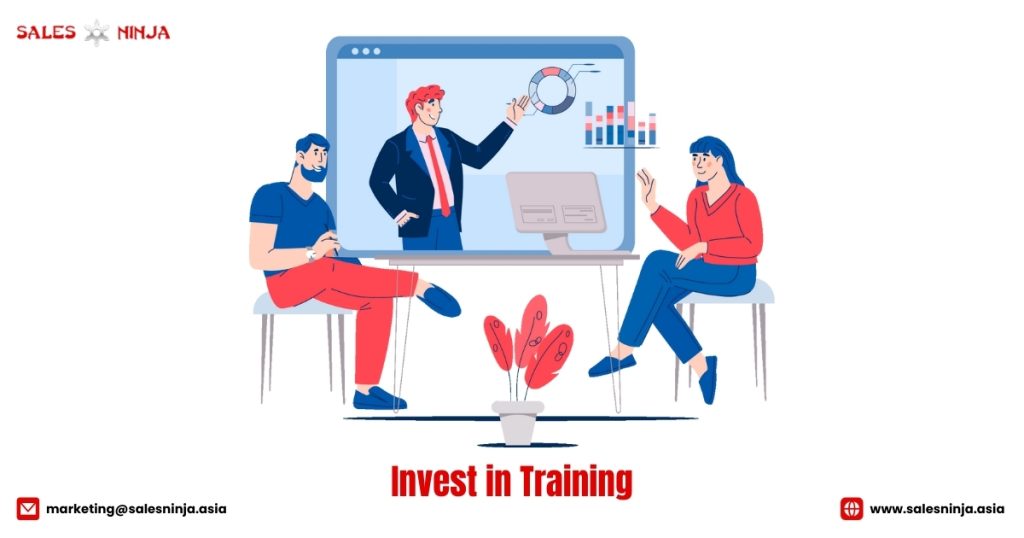
Wrong Approach for Different Buyer Groups
One key challenge in real estate sales, notably, is using the wrong approach with different buyer groups. This issue often stems from agents not adapting their strategies and communication styles to suit the varied preferences and needs of diverse buyer demographics.
Specifically in real estate sales, there are two main buyer groups: property investors and property purchasers. Investors, for instance, are primarily concerned with profitable deals, focusing on numbers, forecasts, and potential returns. Conversely, purchasers usually make decisions based on factors like location, amenities, and their emotional connection to the property.
However, it’s crucial to acknowledge that even within these general categories, real estate buyers differ significantly in age, background, motivations, and preferences. For example, millennials might look for eco-friendly features and digital convenience, whereas baby boomers might value spaciousness and proximity to amenities more. Not recognizing these nuances can lead agents to miss the mark when trying to engage with their target audience.
Impact
- Missed Opportunities: Agents may miss out on potential buyers who feel their needs are not being addressed.
- Extended Sales Cycles: Ineffective communication can lead to longer decision-making processes and delays in closing deals.
- Reputation Damage: Negative experiences can tarnish an agent’s reputation, potentially leading to fewer referrals and repeat business.
Solutions
Buyer Persona Development: Create detailed buyer personas for various demographic groups to better understand their motivations, preferences, and pain points.
Cultural Competency: When dealing with international buyers, invest in cultural competency training and consider hiring agents with cultural and language proficiency.
Personalization: Use data and technology to personalize interactions and property recommendations based on individual buyer profiles.
Adaptability: Stay updated on evolving trends and preferences within different buyer groups to remain adaptable and responsive.
Transform your sales efforts with Sales Ninja
Now, it’s time to take action. Armed with insights and strategies to navigate these challenges, you have the tools to enhance your real estate sales performance. Whether you’re a seasoned agent or just starting in the industry, the key is to put these solutions into practice. And Sales Ninja can be your great partner in this journey. Our comprehensive training programs cover every aspect of real estate sales, from prospecting and negotiation to customer relationship management through which you can take your sales skills to the next level.
So, join us today and start achieving outstanding results in the competitive world of real estate sales. Contact Sales Ninja: https://salesninja.asia/contact/

